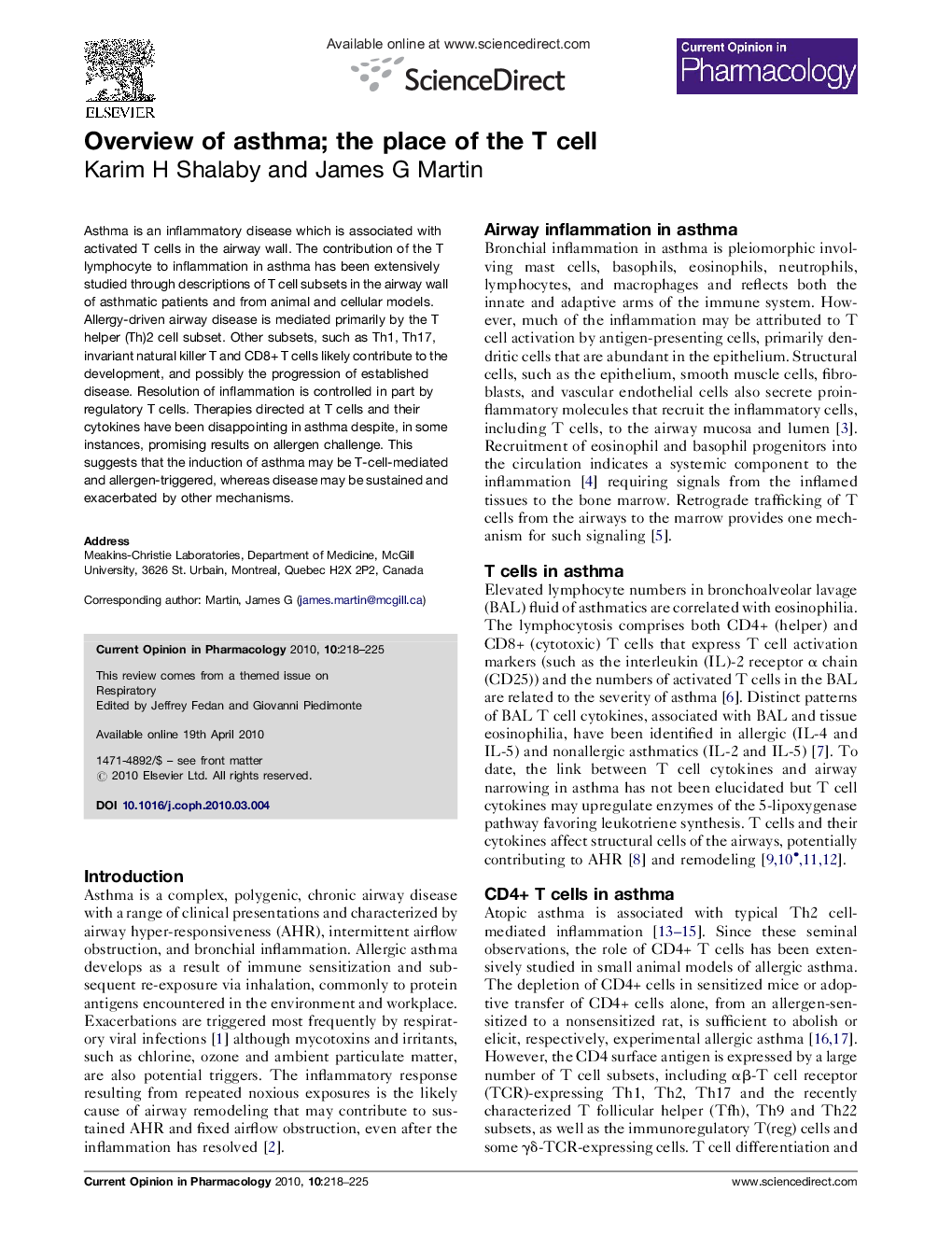| Article ID | Journal | Published Year | Pages | File Type |
|---|---|---|---|---|
| 2530187 | Current Opinion in Pharmacology | 2010 | 8 Pages |
Asthma is an inflammatory disease which is associated with activated T cells in the airway wall. The contribution of the T lymphocyte to inflammation in asthma has been extensively studied through descriptions of T cell subsets in the airway wall of asthmatic patients and from animal and cellular models. Allergy-driven airway disease is mediated primarily by the T helper (Th)2 cell subset. Other subsets, such as Th1, Th17, invariant natural killer T and CD8+ T cells likely contribute to the development, and possibly the progression of established disease. Resolution of inflammation is controlled in part by regulatory T cells. Therapies directed at T cells and their cytokines have been disappointing in asthma despite, in some instances, promising results on allergen challenge. This suggests that the induction of asthma may be T-cell-mediated and allergen-triggered, whereas disease may be sustained and exacerbated by other mechanisms.
